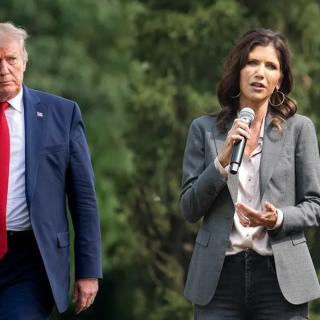Advertisement
The TPP: Strap in and watch the world decay part 1
There are times when the evil you are facing is so vast, so powerful, and so determined that you begin to question your own sanity. I had put off learning about the Trans-Pacific Partnership for a while now, because though I knew it was horrible, it seemed complicated. Of course, that is part of the point. The multivariate machinations of global capitalism are able to hide in plain sight precisely by passing themselves off as dry boring stuff you don't really need to concern yourself with. Free trade agreements, though, are anything but, witness: Ukraine having a revolution over one right now.
And yes, while the phrase “investor-state dispute settlement” sounds esoteric, the concept of corporations suing governments in an international tribunal over environmental regulations that infringe on potential profits ten years in the future is not that complicated. That is but one example of the litany of cartoonishly wicked ideas contained in the proposed Trans-Pacific Partnership Agreement, and these are only the ones we know about through leaks and free trade agreements of the past. But to understand the nature of the evil that the TPP represents, we must first address the centuries of pseudoscience and misdirection baked into the concept of free trade itself.
There are very few straight dogmas that exist in this great land of free speech, but the gospel of free trade is one of them. Drilled into the heads of the nation's youth in the oft-required indoctrination into capitalism known as microeconomics, the thought experiment goes something like: one nation is exceptionally good at producing one thing. Another nation is exceptionally good at producing another. Therefore, it would be better for all parties involved if, instead of each nation trying to produce both goods in isolation, the respective nations would specialize in their respective goods and trade. Of course economics being the pseudoscience that it is, you then have to enact this maxim with a set of problems involving rudimentary math skills.
But it goes further than that. The gains from trade apply even in a situation in which one nation is better at producing both of the goods in question. So even though the United States produces more oil and more pop music records than Brunei, and Brunei produces more pop music records than it does oil, Brunei still needs to trade with the US because they're better at producing oil than they are at producing pop music records. This is what we call comparative advantage.
In one YouTube lesson I found out about comparative advantage, instead of using an example of two nations, it uses the example of two roommates where one makes pizza and the other brews root beer (leaving aside how comically out of touch writers of econ textbooks are with the lives of college students). At the end of the lesson, after establishing which roommate has the comparative advantage with regards to pizza vis-a-vis root beer, it then asks you to calculate the price at which the roommates would find it acceptable to trade their respective root beer and pizza. At no point in this conception of human interaction does the possibility of the two roommates sharing and not keeping meticulous records of quarters of pizza ever arise. If the concept of two roommates negotiating the trade price of the food in their house sounds somewhat perverse, that's because it is.
While these concepts sound very nice and egalitarian when the professor explains them, upon any closer analysis, the exploitation is apparent. In this framework, the largest nation gets to flex its productive capabilities while also extracting resources from the smaller nation, which is now relegated to producing not what it is best at, but what is most useful to the larger nation, and the smaller nation is also frozen out of producing goods that might compete with the larger nation. A place for everything and everything in its place. All told, it is a rather condescending model, one that dovetails very nicely with the logic of colonialism.
This of course is not a coincidence. In fact, these theories just so happened to be developed in the West's imperialist heyday, in the days when Europe and the US opened up East Asian markets by force (see: the Opium Wars or Matthew Perry rolling his warships into Tokyo). But purported fairness in the midst of violent impositions has always been the modus operandi of neoclassical economics.
Indeed, the reality of free trade agreements bears almost no relevance to the words “free” or “trade.” Instead we have rules that supersede national sovereignty, much less democratic governance, and extraction of resources and sweatshop labor in exchange for foreign direct investment that will bolt at the first sign of trouble. Truly then, the logic that under-girds econ textbooks and the dogma of free trade, despite its constant assurances otherwise, is not natural or rational, but somewhat psychopathic. Our common understanding of the word “trade” implies an equitable reciprocal exchange between willing partners. The TPP fails on all accounts.
As such then, it is officially TPP month and then some at Ain't No Love In The Heart, a five part series with expropriation, intellectual property, and the Asia pivot as special guests. Now, there is reason for hope, since to stop it, we basically need Congress to do what it does best (i.e. nothing), but we also need to stay alert to the very real future that may await us. Nothin’ to lose but our chains. It's obvious.
Address all hate mail to petermgunn@gmail.com Follow on Twitter @petermgunn



